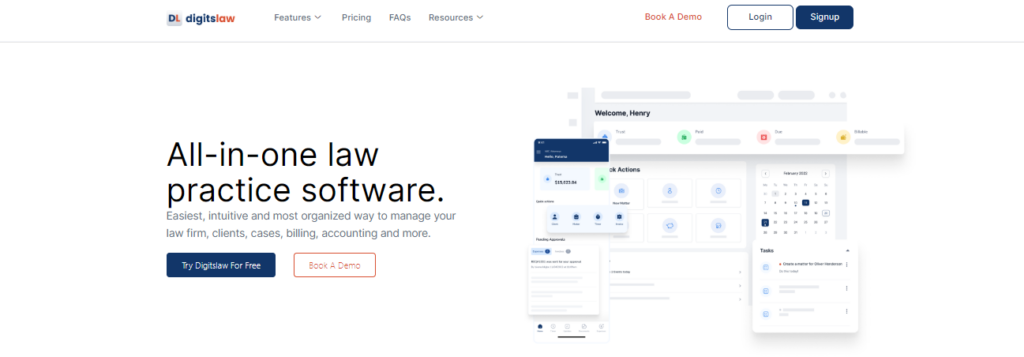In today’s legal environment, being a great lawyer is no longer just about knowing the law, it’s about mastering the tools that make legal work more efficient, collaborative, and error-free. The modern legal professional juggles increasing caseloads, remote teams, and high client expectations. In this new reality, digital tools are no longer optional; they’re essential. At the heart of this digital shift is one often-overlooked yet critical function: Legal task management.
The Problem With Traditional Legal Task Management
Despite the growing complexity of legal practice, many firms still rely on outdated methods to manage their daily workload sticky notes on monitors, disorganised email threads, spreadsheets, and ad-hoc reminders scribbled in notebooks. These tools may have served a purpose in the past, but today, they create more problems than they solve.
Legal work is inherently deadline-driven. Whether it’s filing a motion, responding to a discovery request, or preparing for a court appearance, every action is tied to a timeline. Yet, traditional task management methods lack the structure and visibility needed to keep pace with modern demands. Tasks often fall through the cracks, deadlines are missed, and accountability becomes blurry, especially when multiple team members are involved. The limitations of these manual systems become even more apparent as legal teams grow or operate across multiple locations. Junior associates may not have clarity on priorities. Partners may lack real-time insights into the progress of key cases. And support staff may find it difficult to coordinate across departments without duplicating efforts or stepping on toes.
These inefficiencies don’t just cause internal friction, they have real consequences for clients. Missed deadlines can lead to lost cases, reputational damage, and in some jurisdictions, even penalties for non-compliance. In a profession where time is quite literally money, the lack of a structured task management system can quietly erode profitability, productivity, and client trust.
What Makes Legal Task Management Critical in Modern Practice
Lawyers today are managing far more than just legal research and courtroom appearances. From client communication and case strategy to document review, billing, compliance, and internal collaboration, legal work has become increasingly multifaceted. Task management is no longer a back-office function; it’s a mission-critical element of legal operations.
Image Source: IdeaScale
- Coordinating Across Teams and Practice Areas
In growing law firms, cases often require input from multiple professionals senior partners, junior associates, paralegals, and administrative staff. Without a clear system to assign, delegate, and monitor tasks, even simple matters can become chaotic. Effective task management ensures that everyone knows their responsibilities, deadlines, and dependencies at every stage of a case.
- Tracking Deadlines and Legal Obligations
Missing a deadline in law can have severe consequences. Whether it’s a court filing, a statutory deadline, or a contract milestone, task management tools provide built-in alerts, reminders, and calendars that ensure nothing slips through the cracks. This is particularly critical in jurisdictions with complex procedural rules or fast-moving litigation timelines.
- Enhancing Accountability and Transparency
When task ownership is unclear, inefficiency thrives. A digital task management system creates transparency by showing exactly who is responsible for what, and when. This clarity promotes accountability, reduces finger-pointing, and fosters a culture of ownership within legal teams.
- Syncing with Calendars, Files, and Case Documents
Legal work doesn’t happen in isolation. Tasks are often tied to specific documents, client records, or court dates. A modern task management system integrates with calendars, case files, and communications so that all relevant information is centralised. This not only saves time but also reduces errors caused by working across disconnected platforms.
- Supporting Remote and Hybrid Work Models
As more law firms adopt remote or hybrid work models, the need for cloud-based task management has intensified. With a centralised digital tool, lawyers and support staff can stay aligned on tasks and priorities regardless of where they’re working, ensuring business continuity and consistent service delivery.
In short, efficient task management enables law firms to operate like well-oiled machines, accurate, and client-focused. Without it, even the best legal talent can get bogged down by disorganisation and preventable errors.
Digitslaw: Legal Task Management Tool Built for Legal Professionals

At Digitslaw, we understand the unique challenges legal professionals face when managing tasks across cases, teams, and timelines. That’s why we’ve built an all-in-one practice management platform tailored specifically for modern law firms and solo practitioners, streamlining everything from case tracking to document management and, critically, task management. Unlike generic productivity tools, Digitslaw’s task management feature is built around the realities of legal work. Whether you’re working on litigation, corporate law, or real estate, our system allows you to create tasks directly within client matters, assign them to team members, set deadlines, and attach relevant documents all in one place. Each task is contextualised within a case, so you’re never switching tabs or hunting through email threads. You know exactly what needs to be done, by whom, and when.
Key Features of Digitslaw Legal Task Management
- Matter-linked tasks: Create and manage tasks within specific client matters for better organisation and tracking.
- Real-time collaboration: Assign tasks to team members, set priorities, add comments, and track progress whether your team is in-office or remote.
- Deadline alerts and reminders: Stay on top of key milestones with automatic notifications and calendar sync.
- Visual dashboards: Get a clear overview of what’s pending, in progress, or completed across all your matters or filtered by team member.
- Secure file attachments: Attach case files, contracts, or court documents to tasks for instant access.
Digitslaw’s integrated approach eliminates the need for juggling multiple software tools. From billing and scheduling to document automation and task tracking, everything works together to keep your practice efficient and compliant. By bringing your firm’s operations into one secure and easy-to-use platform, Digitslaw empowers legal professionals using legal technology to focus on what matters most, delivering excellent legal service.
Why the Future of Legal Work Demands It
The legal industry is undergoing a significant transformation. As client expectations rise and competition intensifies, law firms must adopt the tools and systems that enable them to work smarter, not harder. Task management is no longer an optional feature, it’s a critical component of how modern legal practices operate and grow.
As more law firms move towards digital platforms, task management is quickly becoming a non-negotiable part of legal operations. Clients demand faster responses, higher transparency, and better service, and this is only possible with a system that tracks every task, deadline, and communication in real-time. Law firms that lag in embracing digital solutions will soon find themselves at a competitive disadvantage. With more law firms offering remote and hybrid working arrangements, it’s essential to have a robust digital infrastructure in place to manage tasks, deadlines, and collaboration. Digital task management systems like Digitslaw offer the flexibility to work from anywhere while maintaining control over workflow, ensuring that law firms can operate seamlessly regardless of location.
The future of legal work will increasingly involve artificial intelligence and automation, streamlining routine tasks and reducing manual workload. A strong digital task management system lays the foundation for adopting AI-driven tools that can automatically assign tasks, flag potential conflicts, and even predict case outcomes. Law firms that invest in these systems now will be better positioned to harness the power of automation in the future. Legal practices, like any other business, must be prepared for growth. As firms expand, managing an increasing caseload and a growing team can become overwhelming without the right tools. Digital task management systems provide the scalability necessary to handle higher volumes of work without sacrificing quality or efficiency.
Digitslaw offers a powerful, intuitive solution to transform how legal professionals manage their workloads, collaborate with teams, and meet deadlines. By adopting digital task management, law firms and legal professionals not only streamline their day-to-day operations but also position themselves for sustained growth and success in the future.
Don’t let outdated processes hold you back. Take the first step toward a more organised, productive, and future-ready practice with Digitslaw’s integrated task management system.







